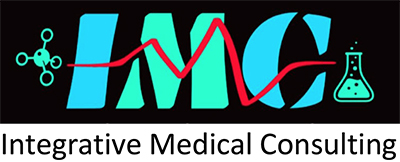Integrative medicine is a way of providing medical care with regard to unique client needs and circumstances by using natural modalities alongside with conventional medicine for diagnosing and treating health issues with a focus on prevention and achieving of optimal health.
Sadly, most of current healthcare in the USA is strictly conventional. The main issue is that healthcare providers are not preventative, but they mainly bandaid the problems, instead of looking for the cause. I always look for underlying issues such as exposure to toxic metals, such as lead or mercury. Is there inflammation? Are there genetic predispositions to certain diseases? Are the hormone levels optimal? Asking questions like these guides me to order appropriate diagnostics – comprehensive blood wellness profile and functional studies. This allows me to get an accurate picture of my client that most conventional doctors can’t get because of multiple issues with our healthcare system. Let’s look at some of the major ones, which are training, time, and money.
Doctors, nurse practitioners, and physician assistants are trained in the conventional medical model. For diagnostics, we mainly use structural tests such as X-rays and CT scans, and lab work, typically not enough to make accurate decisions for our patients’ optimal wellbeing. Treatment options, in the conventional model consist of medications, surgery, physical therapy, some lifestyle advice, and limited number of supplements. As far as prevention goes, healthcare providers rely on immunizations and structural diagnostic tests like mammograms and colonoscopies. Many of these tests and treatments have numerous risks and adverse effects associated with them; actually, the healthcare industry is responsible for more than 250,000 deaths in the US each year.
Time
Most insurance-based medical practitioners see patients in less than 15 minutes. In that time, they are supposed to review patient history, complete a physical exam, review diagnostic studies, order medications and tests, provide education and lifestyle recommendation, complete charting, and submit billing, while adhering to multiple practice guidelines, and meaningful use requirements. Some providers are forced to see 30 or more patients per day. Because of this, many new physicians are looking to specialize or give up they private practices and join large groups in order to survive. I believe that a healthcare provider needs between 45-60 minutes with a new patient to be able to assess what might be really going on.
Money
The sad truth is that pharmaceutical industry is really not interested in making people healthy. They make money by selling drugs and providing treatments to the ill. Unfortunately, the health insurance companies do not cover most of the functional tests or treatments such as vitamins, IV nutrient therapies, chelation, or bio-identical hormone replacement. This is despite the fact that there are numerous research studies that support their use. Therefore, the healthcare providers who want to practice integrative medicine can’t accept insurance, they are cash practitioners, making it inaccessible due to high cost to a number of patients.




